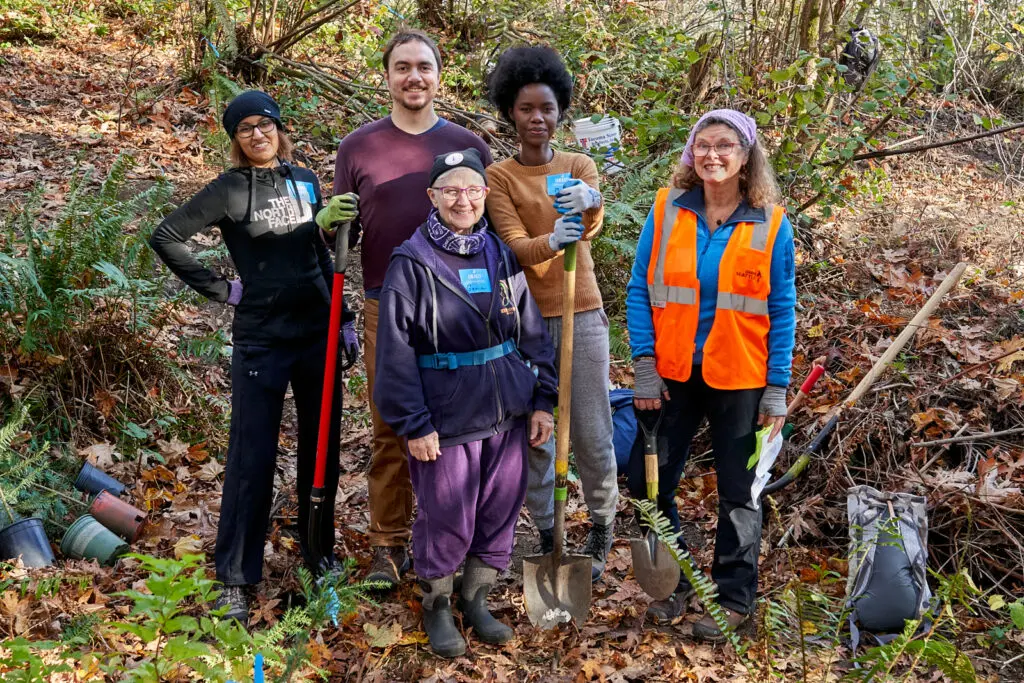First-of-its-kind survey across King, Snohomish and Pierce counties polls 300 millennials on the telephone; another 868 were surveyed online
Much has been written about how the Puget Sound region has bucked national trends this election season. We voted for an increased minimum wage. We took on additional taxes for transit. We elected the first Indian-American woman to Congress. We gave Hillary Clinton one of her highest vote margins anywhere.
When you dig deeper into the rising generation of voters—i.e. millennials—you’ll see that this isn’t an aberration. In other words, our progressive stronghold is about to get even more progressive.
These are the conclusions of a first-of-its-kind study of local millennials by Forterra, a regional sustainability nonprofit, and EMC Research, a pollster. The Livability Survey for Puget Sound Millennials paints a detailed picture of the 413,000 millennials (those ages 20-35) who live in the Puget Sound area. King County is second only to Brooklyn in percentage of millennial residents, as reported by the New York Times. It’s also second among all big counties nationwide in the percentage of people who moved in the past year from another state.
There are numerous studies about millennials nationwide—but this is the first that takes a deep dive on lives, ideas and values of millennials here. (The Forterra/EMC survey takes into account feedback from 1,168 local millennials [300 in a random survey by phone]. By way of comparison, a recent national poll by the Pew Research Center surveyed 617).
The Forterra/EMC survey posed nearly 100 questions on a range of subjects including housing, transportation, work, recreational pursuits, philanthropy, volunteerism and what they envision for their future. Results from the entire Forterra/EMC survey will be released in waves in coming weeks. This first report focuses on values.
Those values, according to the survey, point to a highly progressive set of beliefs—extending beyond the already-defined liberal character of Puget Sound. When queried about their top local concerns, millennials mention equity and living in a diverse community far more often than adults in general in this region.
But millennials also worry about affordability and whether they’ll be able to put down roots in the region.
“For an organization like ours, which is intent on keeping this place we live a place we love, we need to be mindful of the kind of region millennials are looking for,” said Gene Duvernoy, president of Forterra. “We know they’re here. We know that our diverse economy and the beauty of our natural world draws them. The survey tells us they want to preserve natural space. They value racial diversity. They’re more willing to give up their cars. They’re more willing to use transit. But there’s a wall of affordability that could end up pushing them into the suburbs. So how can we create a future that’s worthy of their ideals?”
The survey found unexpected differences between millennials who grew up here versus those who are newly arrived. Put simply: newer millennials are even more strongly progressive than their homegrown peers.
Findings about millennials’ top environmental concerns, their preferred mode of transportation, their thoughts about the future of this region will be released by Forterra in early 2017.
The values subset of the Forterra/EMC survey includes the following:
- When asked about the issues that concern them the most, millennials in the Forterra/EMC poll ranked inequality and racism When adults of all ages in the region were asked this same question, equity wasn’t even listed in the top 10.
- In keeping with their interest in equity, Puget Sound millennials care much more about living in a diverse community. Also, they care more about this than compared to other adults nationally.
- A lot more Puget Sound millennials identify as LGBTQ — 14% — than millennials in other parts of the country (about 7%). Additionally, a higher percentage of newer arrival millennials identify as LGBTQ versus those who grew up here.
- Puget Sound millennials, according to the Forterra/EMC survey, are more likely to identify as Independents.
When it comes to labels, newer arrival millennials are twice as likely to embrace being an “environmentalist.”
Newer arrival millennials: 51 %
Homegrown millennials: 27 %
- And while both groups of millennials say we need more parks and greenspace, newer arrivals feel that even more strongly.
Newer arrival millennials: 65 %
Homegrown millennials: 61%
- Are you “a religious person” or “a patriotic person?” Millennials here are less likely to say “Yes” than millennials living somewhere else.
8. Puget Sound millennials have a cynical view of the economy — 75% in the Forterra/EMC poll say it unfairly favors powerful interests. Nationally, that compares to 71% of millennials, and 65% of all adults.
- Puget Sound millennials think they can affect the direction of politics and policy — but not at the national level. They see their opportunity as being close to home. [It’s worth underscoring that the Forterra/EMC survey occurred before the November election. The election’s outcome may intensify this local focus.][1]
[1] These findings on influencing government come from the opt-in web survey (868 respondents) rather than random phone survey (300 respondents). Web survey respondents were concentrated in Seattle.
###
ABOUT FORTERRA
Forterra is an unconventional land trust that works across Washington’s communities and landscapes, from the ranches and shrub-steppe of the Yakima basin, to the estuaries, farms and forests of Washington’s coast, reaching more than 100 counties, cities, towns and rural communities. Working cooperatively with people and nature, Forterra drives land stewardship, management and planning; innovative programs and policies; farming and forestry approaches; community ownership opportunities; and development solutions. Visit www.forterra.org.



